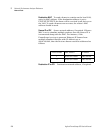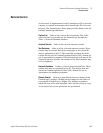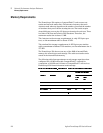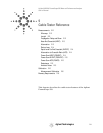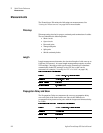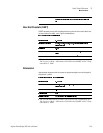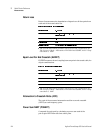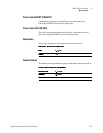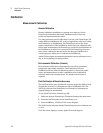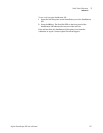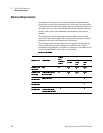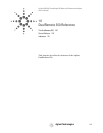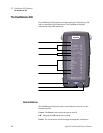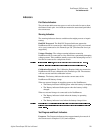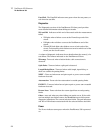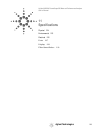216 Agilent FrameScope 350 User’s Manual
9 Cable Tester Reference
Calibration
Calibration
Measurement Calibration
Remote Calibration
Remote calibration establishes a common zero reference for the
FrameScope 350 and its associated DualRemote 350, before any
end-to-end measurements are taken.
You must perform a remote calibration if you use your FrameScope 350
with a different DualRemote 350, or if you upgrade the software in either
the FrameScope or DualRemote. The FrameScope stores the serial
number information of the DualRemote that it has been calibrated with.
Before each measurement, the FrameScope checks the serial numbers of
the DualRemote to which it is connected. If the FrameScope does not
have remote calibration data stored for the detected DualRemote, a
warning appears, asking you to calibrate the DualRemote.
Agilent Technologies recommends running the remote calibration once a
day, at the beginning of a testing session.
Environmental Calibration (Internal)
Environmental calibration compensates for the effects of ambient
temperature and voltage variations. The FrameScope 350 and
DualRemote 350 use internal calibration paths to connect the signal
source and measurement circuits, establishing a local calibration
reference before each measurement. No operator involvement is
required.
Field Verification of Baseline Accuracy
The Self-Test probe (part # N2594A-015) can be used in the field to verify
the baseline accuracy of a FrameScope 350 or DualRemote 350. The
Self-Test probe uses the SmartProbe port interface to automate the
required setups for this function.
To run a Self Test on the FrameScope 350:
1 Make sure that the FrameScope 350 display displays the main menu.
2 Insert the Self-Test probe in the SmartProbe port
3 Press the OK key. A PASS or FAIL screen displays.
The PASS screen indicates that the FrameScope’s baseline calibration data
is valid.
If a FAIL screen displays, contact Agilent Technical Support.



